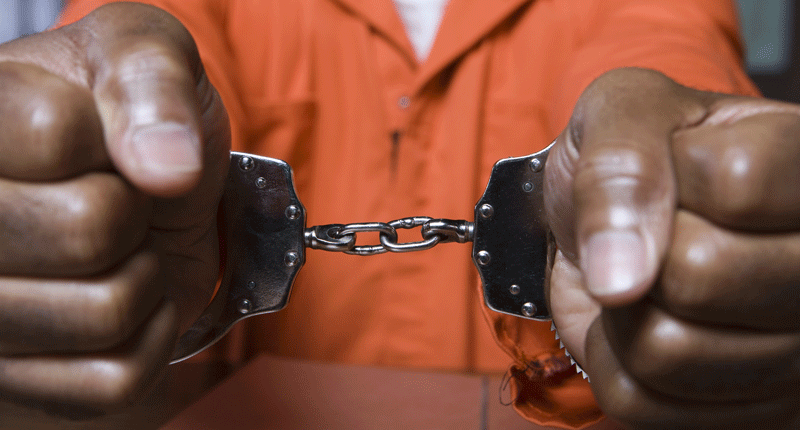Crime shot up 30% during lockdown – Statistical Service
A survey by the Ghana Statistical Service (GSS) has revealed an increase in criminal activities during the period Ghana went under a lockdown to control COVID-19.
The findings showed that at least three out of 10 communities (34.1%) experienced a rise in crime, such as theft and burglary.
The lawbreakers also engaged in other acts and it emerged that domestic violence went up by 3.7% and assaults 3.1% in communities.
Lockdown localities saw the highest increase (47.1%) in crimes.
These are major findings of the Local Economies Tracker conducted by the GSS, in collaboration with the United Nations Development Programme (UNDP).
It was undertaken in 2,770 localities in all 16 regions of Ghana.
Out of the total number of localities surveyed: 554 of them are in districts that were in lockdown areas; 1,169 were in districts that share international borders with other countries (border districts), and 1,047 were neither in lockdown nor border districts (other districts).
The survey was carried out from May to June 2020 and data was collected from key opinion leaders to understand the effect of COVID-19 on the local economy, particularly in localities in border districts, lock down and non-lock down areas.
Professor Samuel Kobina Annim, the Government Statistician, presenting the finding of the report said: “COVID-19 has undoubtedly had a devastating impact on households, businesses, and the local economy in Ghana”.
On the part of the UNDP, its Resident Representative in Ghana said: “Support received by the communities from churches and philanthropists is a clear demonstration of how non-state actors have and continue to complement government’s efforts to ensure communities recover better from the pandemic. Partnerships like these are key for the achievement of the SDGs”.
He said the COVID-19 restrictions also affected businesses in the local communities, with seven to eight out of ten businesses experiencing a reduction in production.
COVID-19 Lockdown
President Nana Akufo-Addo announced a lockdown of the hot spots of the coronavirus in Ghana, to control the spread of the virus.
This occurred at a time Ghana had recorded five deaths and 152 infections.
On the back of the fast-spreading pathogens and calls for the restriction of movements spearheaded by the Ghana Medical Association (GMA), a partial lockdown was imposed in some parts of the country mainly Greater Accra, Kasoa in the Central Region and Kumasi in the Ashanti Region.
The directive took effect at 1 a.m, on Monday, March 30, 2020. However, the directive did not affect a section of the public who were described as essential service providers.
The partial lockdown period was for three weeks and it was lifted on April 20.
Essential service providers included health professionals, media, bankers, members of the Executive, Legislature and the Judiciary, and fuel station workers were the categories of people exempted from the lockdown.
Impact of COVID-19 on businesses
The survey further indicated that about 72% and 90% of local businesses saw reductions in production and sales, respectively.
Furthermore, businesses faced labour shortages and high cost of credit during the lockdown.
Prices of almost all products increased, with food and non-alcoholic beverages experiencing the highest price increase of 4.8%.
Even though district assemblies were the main source of direct support and driver of social and political initiatives, over 75% of localities indicated that their district assemblies have not taken economic initiatives to lessen the economic impact of COVID-19.
Few district assemblies initiated economic mitigating measures such as alternative markets for local produce, subsidies on inputs and soft loans for businesses/farmers.
Resilience to COVID-19 was lower in the lockdown districts relative to the other districts.
This suggests a longer duration for lockdown districts to fully recover from the effects of the COVID-19 pandemic.
55.1% of localities have in place social structures at the district level that will help them recover from future shocks, such as COVID-19.
The most common structures are district standing committees, community development committees and business assistance committees.
Approximately 38% of localities think it will take more than a year for the local economy to recover from the COVID-19 pandemic.



